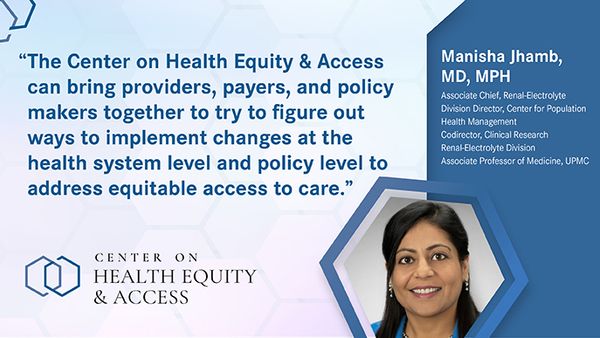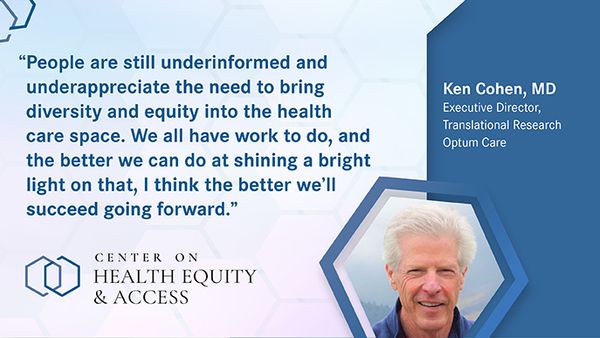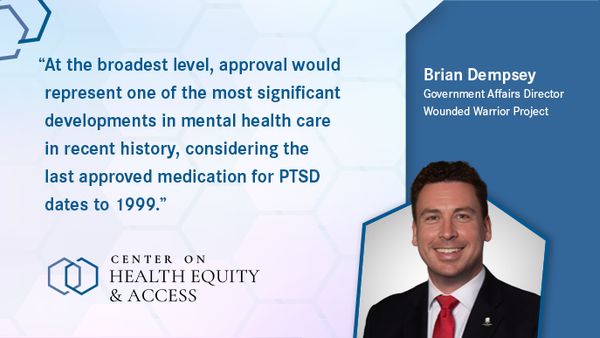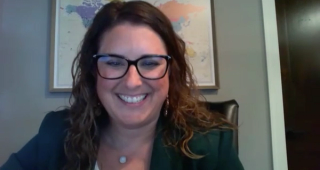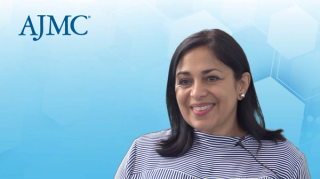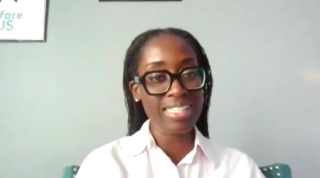
Center on Health Equity & Access
Latest News
Latest Videos

More News

On this episode of Managed Care Cast, we're talking with Jason Spangler, MD, MPH, CEO of the Center for Innovation and Value Research on equity challenges within health technology assessment.

For Minority Mental Health Awareness Month, the Employee Benefits Security Agency (EBSA) in the US Department of Labor highlights the critical need to address mental health disparities among racial and ethnic minorities.

Melissa Clarke, MD, CMQ, the chief health equity officer at Elevance Health, explains "Health Equity by Design" and how Elevance Health is committed to ensuring a personalized and intentional approach for all its members.

Diane Mahoney, PhD, DNP, FNP-BC, WHNP-BC, APRN, discusses her study on how social determinants of health impact the health perceptions of Black and Hispanic ovarian cancer survivors, highlighting significant health disparities.
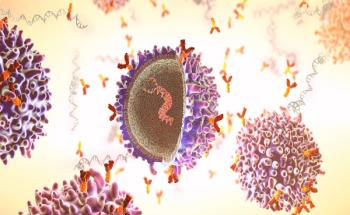
The social determinants of health (SDOH) that need to be tackled most urgently when it comes to which patients with large B-cell lymphoma (LBCL) do and do not receive chimeric antigen receptor T-cell therapy (CAR T) are age, sex, income, and race/ethnicity.

The Greater Philadelphia Business Coalition on Health webinar series provided an in-depth framework for the advantages of including cell and gene therapy coverage in employer health plans, as well as the challenges brought by manufacturing complexities and the need to address accessibility to treatment.

Screening for postpartum depression while patients are pregnant is a crucial step to ensuring they get access to treatment if they need it postpartum, according to Rachel Dalthorp, MD, of LifeStance Health.

Doug Fulling, MA, and Andrew Cournoyer, MBA, discuss how patients could benefit from payers learning more about a new drug by joining clinical trials earlier.

The Commonwealth Fund scorecard ranks Mississippi, Texas, Nevada, and Oklahoma among the poorest-performing states overall for women’s health care access, quality, and outcomes, while Massachusetts, Vermont, and Rhode Island rank at the top.

Social determinants of health (SDOH) factors significantly impact the overall health perceptions of Black and Hispanic ovarian cancer survivors.

Almost half of all Americans struggle to afford quality health care and prescription medications; the cyberattack on UnitedHealth Group's Change Healthcare unit will cost the company between $2.3 billion and $2.45 billion in 2024; CMS releases the final part 2 guidance for plan outreach and education for the Medicare Prescription Payment Plan.

With 20 hospitals earning the Honor Roll distinction, the report compared hospitals in 15 specialties and 20 procedures and conditions. Of these, only 160 earned the "Best Hospitals" ranking, signifying excellence in clinical outcomes, nursing care, and patient safety practices.
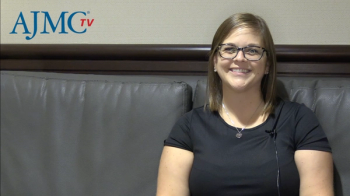
Kelly Harris, APRN, an advanced practice registered nurse at Cincinnati Children's Hospital Medical Center, discusses using mobile care units to deliver dermatology care and education to underserved communities and how health systems can implement them.

At the Society for Pediatric Dermatology annual conference, Faye Brown, MSN, APRN, FNP-BC, a family nurse practitioner at the University of Colorado School of Medicine, highlights how telemedicine efforts can be utilized within dermatology triage systems to better care for pediatric patients.

Learn more about the 2025 Physician Fee Schedule, new health equity initiatives, improving maternal health, and pharmaceutical innovations at the Center on Health Equity & Access.

The 2025 Physician Fee Schedule includes a conversion factor reduction, expanded behavioral health services, extended telehealth waivers, new Quality Payment Program pathways, and measures to address suspect billing, alongside a Biden administration initiative introducing federal maternal health standards for hospitals.

Today, the Siftwell 2024 Medicaid-Eligible Health Equity Index report highlighted ongoing challenges and barriers that underscore the need for systemic changes to improve health care access and outcomes for vulnerable groups.

Cigarette smoking among other modifiable risk factors were significantly associated with cancer cases and deaths.

On this episode of Managed Care Cast, we're talking with the chief medical officer of CVS Health about recent pharmaceutical innovations, patient-provider relationships, and strategies to reduce drug costs.

Rachel Dalthorp, MD, explains that zuranolone is recommended as the first-line medication, alongside psychotherapy, to effectively manage postpartum depression (PPD) and mitigate long-term impacts.

A quality improvement program found that maternal blood pressure (BP) screening during early well-child visits significantly improves the early detection and management of postpartum hypertensive disorders.

Kim Zynn, vice president of UPMC Health Plan's provider network and development relations team, shares how physicians can become LGBTQIA+ affirming providers, which is designated within the health plan.

AJMC's Center on Health Equity & Access shares new developments in HIV treatment, gynecological and multidisciplinary cancer care, and health care barriers faced by older Americans.

The authors advocate for a strategy that reallocates the substantial workforce effort and financial resources currently devoted to low-value care to enhance access and affordability of high-value services.
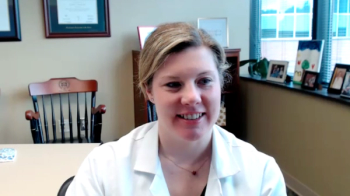
Kathryn Lindley, MD, FACC, Vanderbilt University Medical Center, emphasizes the importance of bringing heart health care to patients and meeting them where they are.




